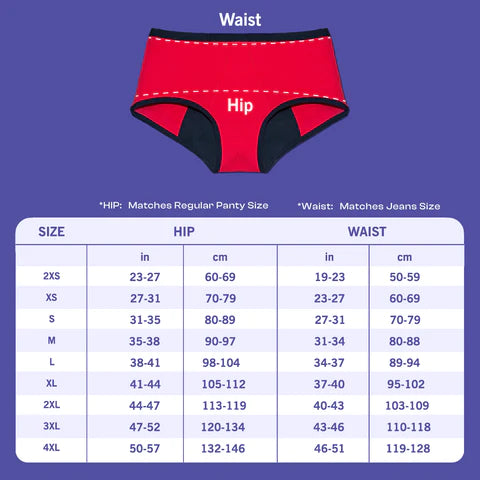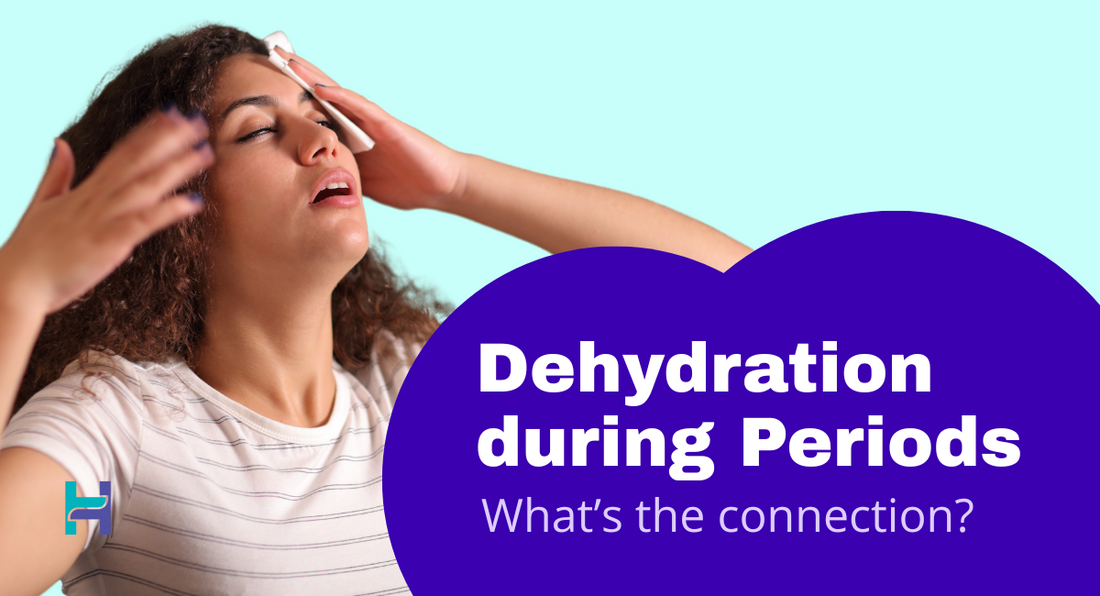When your period appears, it is easy to indicate fingers on hormones for every cramp, headache and sudden decline in energy. And when the hormones play a large role, there is another criminal who often fly under the radar - dehydration.
Most of us do not think about how much water we are drinking during our cycle. But the thing here is: Hydrated is not just about quenching thirst. This can really help reduce your cramps, promote your energy and make you feel fully comfortable.
Once you understand how dehydration messes up with the symptoms of your period, it can actually change the game. From those acute cramps to a fast headache, the effect is real - and is completely avoidable with some simple changes.
What’s the connection between Periods and Dehydration
Your menstrual cycle creates a perfect storm for dehydration. During menstruation, hormonal changes—particularly the reduction in estrogen and progesterone—cause your body to retain water in some areas while losing it in others. This hormonal shift disturbs your body's natural fluid balance, making you more prone to dehydration even when you think you're drinking enough water.
Your body also works harder during menstruation, and it requires additional resources to shed the uterine lining and manage the various physiological processes involved. This increased demand means your hydration needs are actually higher during your period, not lower.
How dehydration increases your period symptoms
Here are some common period symptoms that can get worse when you're not drinking enough water:
- Fatigue and Low Energy During Periods
- Severe Period Cramps and Bloating
- Menstrual Headaches and Migraines
- Urinary Issues and Lower Belly Pain
Extreme tiredness and low energy during periods
Your energy is already at an all-time low when you’re on your period, and dehydration is a one-two punch. When you’re not properly hydrated, your volume of blood drops, which causes your heart to work harder to deliver oxygen and nutrients to your cells. You feel weak and tired from this extra work.
It gets worse because dehydration results in insufficient oxygen supply to your red blood cells. When they don’t get properly oxygenated, your muscles aren’t able to function as efficiently, and this can result in that heavy, tired feeling that feels as though it's just dragging you down. Your blood pressure falls when you are dehydrated, which in turn depletes your energy.
If you're already experiencing period-related fatigue, dehydration will intensify these feelings. The combination creates a cycle where you feel too tired to take care of yourself properly, including maintaining adequate hydration.

Bad period cramps and bloating
Perhaps nowhere is the impact of dehydration more noticeable than in the realm of menstrual cramps and bloating. When you're dehydrated, your blood volume decreases, which means less oxygen and fewer nutrients reach your organs—including your uterus. This oxygen deficit can cause your uterine muscles to contract more painfully, intensifying cramping sensations.
- Dehydration reduces blood flow to the uterus, making cramps worse
- Low oxygen levels can lead to stronger, more painful contractions
Proper hydration plays a crucial role in flushing toxins from your system and reducing inflammation throughout your body. Without adequate water intake, waste products build up, contributing to bloating and discomfort. Water helps your kidneys function efficiently, allowing them to process and eliminate excess sodium that contributes to water retention and puffiness.
- Water helps your kidneys flush out excess sodium
- Less sodium = less water retention and less bloating
Studies have shown that increased water consumption during menstruation can actually reduce the intensity of cycle-related pain. The mechanism is simple: better hydration means better circulation, more efficient waste removal, and less inflammation—all of which translate to reduced cramping and bloating.
Menstrual Headaches and Migraines
Dehydration is a well-known headache trigger, but during your period, this effect becomes magnified. When your body lacks sufficient fluid, your brain tissue temporarily contracts due to fluid loss. This contraction causes the brain to pull away from the skull slightly, resulting in that characteristic throbbing pain we associate with dehydration headaches.
For women who are already prone to hormonal headaches during their periods, dehydration can be the tipping point that transforms a manageable headache into a full-blown migraine. The combination of hormonal fluctuations and dehydration creates the perfect conditions for severe head pain that can last for hours or even days.
As per National Library of Medicine, Menstrual-Related Headaches (MRH) headaches are a common class that occur in women related to a decline in estrogen during the menstrual cycle. It also indicates that adequate water intake is linked to reduced severity of menstrual pain, implying that dehydration (low water intake) could contribute to more intense pain.
Urinary issues and Lower belly pain
Your kidneys respond to dehydration by conserving every drop of water they can. This survival mechanism leads to decreased urine output and darker, more concentrated urine. While this is your body's way of protecting itself, it can create additional discomfort during your period.
When you're not urinating frequently enough, waste products and toxins that should be eliminated remain in your system longer. This backup can contribute to lower abdominal pain and general discomfort in your pelvic region. The concentrated urine can also be more irritating to your urinary tract, potentially causing burning sensations or increased urgency when you do urinate.
Why dehydration happens during your period
You might not know this, but it is actually more difficult to stay hydrated during your period. It’s because your body undergoes a number of changes that lead to an increase in fluid loss and a decrease in water intake — sometimes without you even realizing it.
Here’s why you may not realize you’re getting dehydrated during your period.
1. Changes in hormones and loss of fluids
During your period, the levels of estrogen and progesterone change. These hormonal shifts can change the way your body retains water. At the same time, you’re losing fluids, too, through your menstrual blood, which compounds any dehydration going on. So: Even if you’re drinking what seems like a pretty normal (for you) amount of water, it might not be enough to keep up with the demands on your body.
2. Unhealthy cravings
Food cravings during your period tend to veer toward salty chips or sugary treats. Those snacks may cause you to guzzle less water and consume fewer water-rich foods like fruits or veggies. And salt especially can cause your body to retain sodium, worsening bloating and leaving you feeling even more dehydrated.
3. Caffeine and alcohol intake
A lot of women turn to coffee, tea, or even a glass of wine on their periods as something to enjoy. But these drinks are diuretics — they cause you to urinate more frequently, which results in even more fluid loss. This accelerates dehydration, particularly if you aren’t balancing it out with plenty of plain water.
The Ripple effect of other symptoms
Dehydration during your period doesn't stop at the major symptoms. It can also contribute to muscle pain throughout your body, particularly in your back where many women already experience period-related aches. The reduced oxygen delivery to your muscles makes them more prone to tension and pain.
You might also notice increased dizziness or episodes of feeling lightheaded, especially when standing up quickly. Some women experience swelling in their feet and ankles, which dehydration can worsen by disrupting normal fluid balance throughout the body.

Taking control through hydration
Listen to your body—the signs of dark yellow urine, constant headaches, or feeling unusually tired could suggest that you're not drinking enough water. We highly recommend you to keep a bottle of water by your side and, if needed, set an alarm on your phone so you don't forget.
We also suggest you to give yourself a break, because your period does not have to feel worse than it already does. Dehydration may well be aggravating the symptoms of cramps, fatigue, and bloating.
It’s always a good idea to develop a basic habit: drink more water every day and most especially during your period. In simple terms, that means at least 8 to 10 glasses.
Place fruits and herbal teas like green tea or chamomile tea on the menu if plainer water is not your cup of tea. This tiny step can make a huge difference in reducing the discomfort and keeping you in control of your body from one month to the next.


